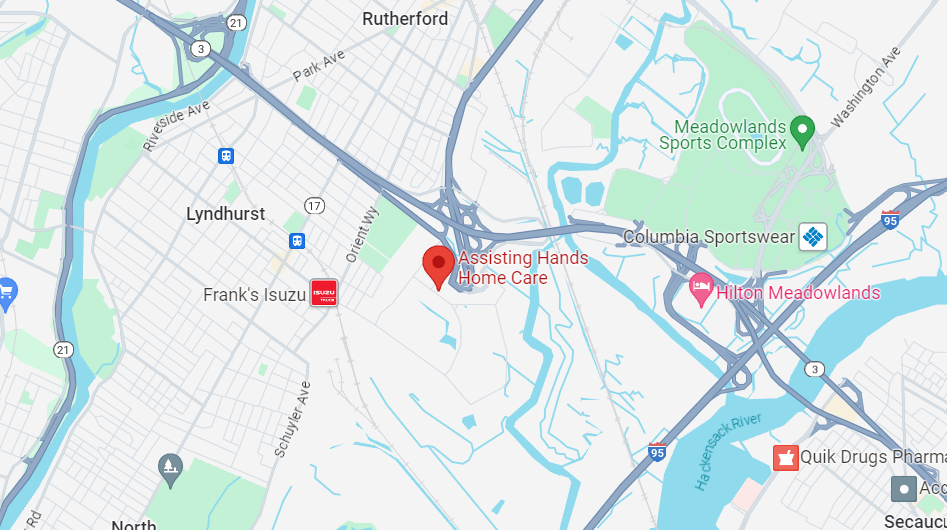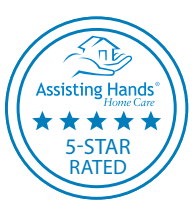Introduction:
As our bodies gracefully age, we often encounter unique health challenges. Swollen ankles, a seemingly common issue among seniors, can be both a discomfort and a cause for concern. In this comprehensive exploration, we aim to shed light on the causes of swollen ankles in seniors and provide insights into when to be concerned, the potential association with heart problems, effective remedies, and the role of hydration in managing this condition.
Understanding Swollen Ankles:
Before delving into the signs that should trigger concern, it’s essential to understand the basics of swollen ankles. Medically known as peripheral edema, this condition involves the accumulation of fluid in the tissues of the lower extremities, resulting in swelling. Swollen ankles can be caused by a variety of factors, ranging from benign to more serious health issues.
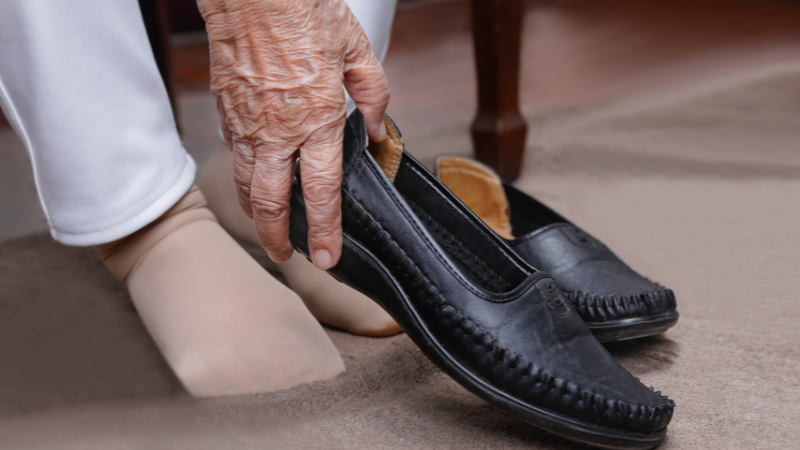
Section 1: When Should I Be Concerned About Swollen Ankles?
Swollen ankles, while common, often raise questions about their underlying causes and potential health implications. While occasional puffiness may not be alarming, it’s crucial to distinguish between normal occurrences and situations that warrant concern. Understanding when to be concerned is crucial for proactive healthcare and home health care management in seniors.
Recognizing Normal Swelling:
Mild ankle swelling may be a normal part of aging, particularly after extended periods of standing or sitting. It could also be influenced by lifestyle factors such as diet and physical activity. However, persistent or sudden swelling that doesn’t subside with rest and elevation may indicate an underlying problem.
When Should I Be Concerned?
Sudden Onset:
-
- Normal: Mild swelling at the end of the day can be normal, especially if your senior loved one has been on their feet for an extended period.
- Concerning: If swelling occurs suddenly and is accompanied by pain, redness, or warmth, it may indicate an acute problem that requires immediate attention. This could include issues such as deep vein thrombosis (DVT) or an injury.
Persistent Swelling:
-
- Normal: Occasional swelling that resolves with rest and elevation may not be a cause for concern.
- Concerning: If the swelling persists over an extended period, it may be indicative of an underlying chronic condition, such as heart failure, kidney disease, or venous insufficiency. Persistent inflammation warrants a consultation with a healthcare expert for a comprehensive assessment.
Unilateral Swelling:
-
- Normal: Bilateral swelling in both ankles is more common and may be related to general factors like aging or prolonged standing.
- Concerning: Unilateral (one-sided) swelling could be a sign of a local issue, such as an injury, infection, or circulatory problem in that specific leg.
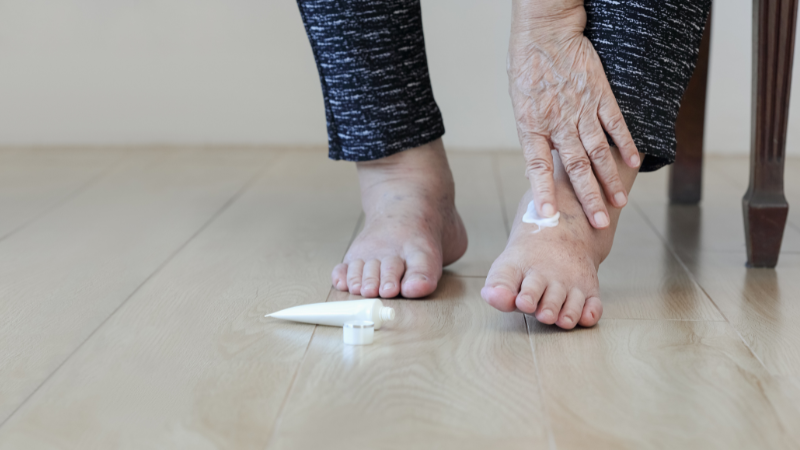
Associated Symptoms:
-
- Normal: Mild swelling without any other symptoms may not be a cause for immediate concern.
- Concerning: If swelling is accompanied by symptoms like shortness of breath, chest pain, or difficulty breathing, it may suggest a potential heart or lung issue, necessitating urgent medical attention.
Medication-Related Swelling:
-
- Normal: Some medications, like those for hypertension or diabetes, can cause mild swelling as a side effect.
- Concerning: If the swelling becomes severe or is accompanied by other adverse effects from medications, consult a healthcare professional to discuss potential adjustments or alternative treatments.
Section 2: Does Swollen Ankles Mean Heart Problems?
Swollen ankles, a seemingly innocuous symptom, can sometimes be the body’s way of signaling underlying health issues. While swollen ankles don’t always signify heart problems, it’s essential to be aware of the potential connection between the two. Being attuned to your body’s signals, seeking medical advice when needed, and adopting a heart-healthy lifestyle can help you stay on top of your cardiovascular well-being.
Understanding Swollen Ankles:
Before jumping to conclusions, it’s crucial to understand the various causes of swollen ankles. Edema, the medical term for swelling, can be triggered by factors such as standing or sitting for extended periods, pregnancy, or even a minor injury. However, persistent or sudden swelling that doesn’t seem to have an apparent cause should raise a red flag.
The Heart-Edema Connection:
One of the lesser-known connections between swollen ankles and heart problems lies in the intricate workings of the cardiovascular system. The heart, as the body’s central pump, plays a vital role in maintaining fluid balance. When the heart struggles to pump blood effectively, fluid can accumulate in various parts of the body, leading to edema – and the ankles are a common location for this buildup.
Signs of Potential Heart-Related Swelling:
How can you distinguish between harmless swelling and swelling indicative of heart issues? Caregivers and family members should pay attention to accompanying symptoms such as shortness of breath, fatigue, or irregular heartbeat. These could suggest an underlying problem with the heart’s ability to circulate blood efficiently.

When to Seek Medical Attention:
If you notice persistent or sudden swelling in your ankles, especially when accompanied by other concerning symptoms, it’s imperative to consult a healthcare professional. Early detection of heart-related issues can significantly impact the effectiveness of treatment and improve outcomes.
Preventive Measures for Heart Health:
Maintaining a heart-healthy lifestyle can go a long way in preventing both heart issues and associated symptoms like swollen ankles. Regular exercise, a balanced diet low in sodium, and avoiding tobacco and excessive alcohol consumption contribute to overall cardiovascular well-being.
Section 3: How Do You Get Rid of Swollen Ankles in the Elderly?
Caring for swollen ankles in the elderly requires a holistic approach that considers lifestyle adjustments, dietary changes, and, most importantly, professional guidance. By incorporating these soothing steps into daily life, seniors can find relief and continue to enjoy their activities with the comfort and mobility they deserve. Identifying the root cause is the first step towards effective management. As always, individualized care and open communication with healthcare providers are paramount in addressing and managing swollen ankles in the elderly.
Elevate and Rest:
Encourage the elderly to take the weight off their feet and elevate their legs. Elevating the legs above the heart level can assist in reducing fluid buildup and promoting better circulation. This simple step can be easily incorporated into daily routines, especially during periods of prolonged sitting or after a day on their feet.
Compression Therapy:
Mild compression stockings or socks can provide gentle pressure, aiding in preventing the accumulation of fluid in the ankles. However, it’s crucial to consult with a healthcare professional to determine the appropriate level of compression and ensure a proper fit.
Stay Hydrated:
Proper hydration is essential for overall health and can play a role in reducing fluid retention. Encourage the elderly to maintain an adequate fluid intake unless advised otherwise by their healthcare provider.
Low-Sodium Diet:
Excessive sodium intake can contribute to water retention and exacerbate swelling. Encourage a diet that is low in sodium, focusing on fresh fruits, vegetables, and whole grains. This dietary adjustment can have a positive impact on overall health and help manage swollen ankles.
Gentle Exercise:
Engaging in low-impact exercises, such as walking or swimming, can promote circulation and reduce swelling. Encourage the elderly to incorporate regular, gentle physical activity into their routine, taking into consideration any existing health conditions.
Seek Professional Guidance:
If swelling persists or is accompanied by other concerning symptoms, it’s crucial to seek medical advice promptly. A healthcare professional can conduct a thorough assessment, identify the underlying cause, and recommend appropriate treatment options.
Section 4: Does Drinking Water Reduce Swollen Ankles?

Swollen ankles, a discomfort many of us have experienced at some point, can be attributed to various factors, from prolonged periods of sitting to underlying health conditions. One common piece of advice that circulates is the idea that drinking more water can help alleviate swollen ankles. In this section, we go-over into the relationship between hydration and ankle swelling to uncover whether increasing water intake is a remedy worth considering.
Understanding the Link:
-
- Water is the elixir of life, crucial for maintaining bodily functions and overall health. The idea that staying well-hydrated can reduce swollen ankles revolves around the concept of fluid balance. When the body is adequately hydrated, it is believed to better regulate the distribution and excretion of fluids, potentially preventing excessive fluid retention and subsequent swelling.
Hydration and Circulation:
-
- Proponents of the water-swelling connection argue that good hydration supports optimal blood circulation. Improved circulation, in turn, assists the lymphatic system in efficiently draining excess fluid from tissues, including the ankles. While this theory makes intuitive sense, the scientific evidence supporting a direct link between water intake and ankle swelling reduction is limited.
The Importance of Balance:
- While hydration is undeniably vital for overall health, viewing it as a standalone solution to swollen ankles may oversimplify the issue. Swelling in the ankles can be caused by various factors, including venous insufficiency, heart conditions, or kidney problems. In some cases, simply increasing water intake may not be sufficient, and a holistic approach that addresses the root cause is necessary.
Tips for Maintaining Hydration:
- Consistent Water Intake: Encourage a steady and sufficient intake of water throughout the day. Aim for the recommended daily water intake, which varies based on factors such as age, sex, and physical activity level.
- Balance with Electrolytes: It’s crucial to strike a balance by not only focusing on water but also incorporating electrolytes. These minerals, including sodium, potassium, and magnesium, play a role in fluid balance within the body.
- Limit Sodium Intake: Excessive sodium intake can contribute to water retention. Encourage a diet that is mindful of sodium levels, emphasizing fresh fruits, vegetables, and whole foods.
- Consult a Healthcare Professional: If ankle swelling persists or is accompanied by other concerning symptoms, seeking advice from a healthcare professional is essential. Their expertise can assist in uncovering the fundamental cause and proposing relevant interventions..
- While staying hydrated is a fundamental aspect of maintaining good health, the direct impact of drinking water on reducing swollen ankles may not be as straightforward as it seems. Adopting a balanced approach that includes proper hydration, a healthy diet, and lifestyle adjustments is key. If swelling persists, consulting with a healthcare professional ensures a comprehensive understanding of the underlying factors and appropriate guidance for effective relief.
Conclusion:
Swollen ankles in seniors, though common, should not be overlooked. By understanding the potential causes, recognizing when to seek professional advice, debunking myths about heart problems, and exploring effective remedies, we empower both seniors and their caregivers to navigate this aspect of aging with knowledge and confidence. Through a holistic approach that encompasses lifestyle modifications, medical interventions, and thoughtful hydration, we can work towards ensuring the well-being and comfort of our elderly loved ones.
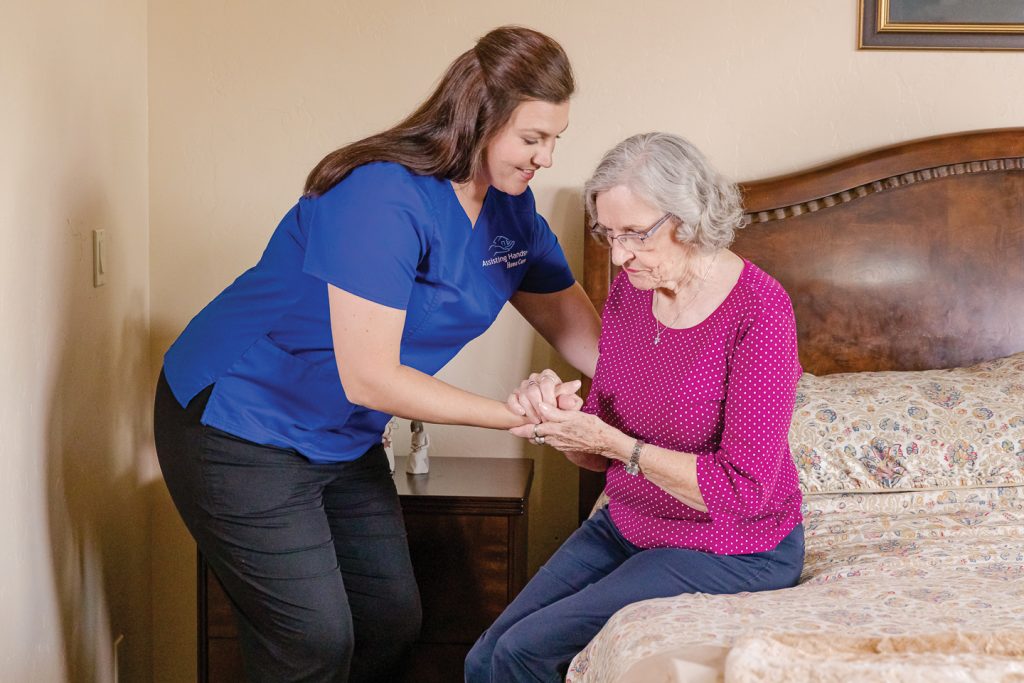
Assisting Hands Home Care offers in-home care and companion care services for seniors and the elderly, with caregivers who are trained to assist those recovering from injuries, surgeries, or health issues. Our licensed caregivers can provide the specialized care needed for adults and seniors to live safely and comfortably at home. Call us for a free in-home consultation at (551) 304-2442.

Abhi Mitra founded Assisting Hands Hudson County after recognizing the significant value of personalized and excellent care through family experience, specifically in caring for his grandmother. His expertise in program management, along with a genuine desire to make a positive difference in people’s lives, motivates him to provide the same level of care that his grandmother received. He obtained an MS degree from Pace University, New York, and a Certificate of Executive Healthcare leadership from Cornell University, Ithaka, NY. Abhi efficiently manages tasks with kindness and intelligence, ensuring everyone feels comfortable and welcome. He excels in problem-solving and puzzles while maintaining smooth operations at the agency and ensuring everyone receives high-quality individualized care. His dedication to his work and compassionate nature greatly improves the quality of life for the seniors under his care, providing them with a comfortable and joyful environment. Abhi ensures the highest possible quality, providing reassurance to everyone. His dedication and caring nature contribute to creating a comfortable and joyful environment for those he assists. He enjoys biking, taking walks, and watching cricket with his family and friends.





